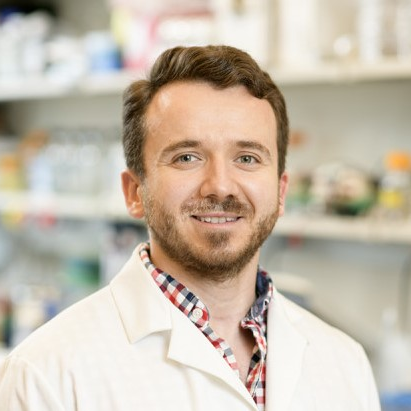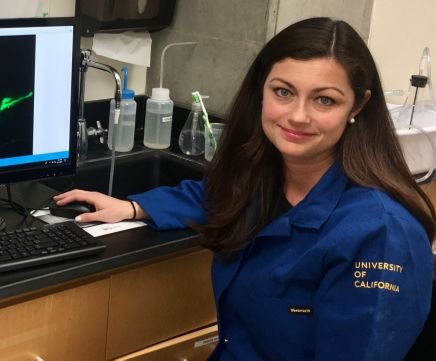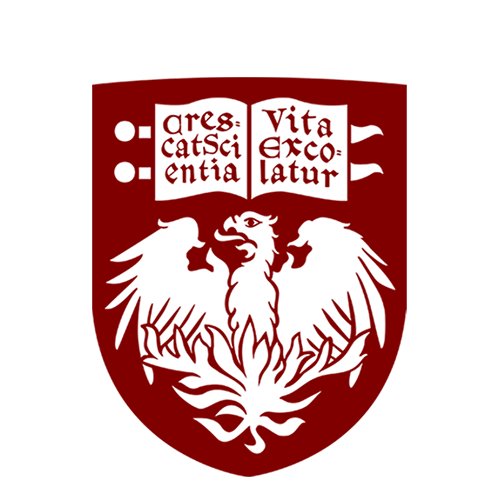
Mara Sherman Lab
@MaraShermanLab
Followers
3K
Following
7K
Media
36
Statuses
1K
Cancer biologist @MSKCancerCenter
New York, NY
Joined November 2018
Dream team!!!
We had a lot of fun with this one - Lymphatics meet B cells with @CarlaTheNove! @nyulangone 👇 Sometimes less is more
0
0
1
🚨Thrilled to share our latest work, published online today @Nature in which we decipher mechanisms underlying the enigmatic VEXAS syndrome - a huge team effort @MSKCancerCenter led by superstars @VarunNarendraMD + @das_tandrila 🧵1/ https://t.co/0ubLHCbR9I
nature.com
Nature - Independent mechanisms of inflammation and myeloid bias in VEXAS syndrome
10
37
142
I’m happy to announce that my thesis work has officially been accepted and is currently online! This has been a labor of love. Thank you to everyone who helped me get here especially @Pasca_Lab who has consistently empowered me and my research interests. https://t.co/6GlrUBFAOb
aacrjournals.org
Abstract. Pancreatic cancer is associated with a high rate of metastasis and poor prognosis. The formation of a premetastatic niche (PMN) facilitates cancer cell spread and contributes to cancer...
3
9
31
Submit an abstract by October 1 for the AACR Special Conference on Cancer Evolution (December 4-6; Albuquerque), chaired by Mariam Jamal-Hanjani, Kenneth J. Pienta, and Mara H. Sherman and held in association with #AACRCEWG. https://t.co/LZZAhO4ofs
#AACRevol25 @MaraShermanLab
0
3
4
Location, location, location! Now out in @NatureCancer, the final version of our study showing how a tumor's anatomic site can impact the function of driver gene mutations, using SMAD4 inactivation in pancreatic cancer as a clin. relevant example: https://t.co/rRu6RYpNWX. (1/3)
nature.com
Nature Cancer - Using mouse pancreatic cancer models, Tsanov et al. show that reactivation of SMAD4 at metastatic sites promotes tumor growth in the lung through RUNX1 but restrains metastatic...
14
32
153
Excited to share our manuscript defining the role of CXCR6 in CD8 TRM formation in skin - hint, its not migration - led by then graduate student @TaylorAHeim with help in revision by @IbrahimOchapa @J_Immunol
https://t.co/HOHnL5xdOE
academic.oup.com
Abstract. Tissue resident memory T cells (TRM) provide protection against local re-infection, and yet the interstitial signals that govern their formation
1
7
56
A new Research Briefing is out about Miranda's paper. Check it out here:
nature.com
Nature - The switch between proliferation and invasion is triggered by mechanical force.
Cancer cells are notoriously plastic, but what triggers the changes in cell state? In our new @nature paper, Miranda Hunter found that mechanical pressure is a key to this switch. Check it out here: https://t.co/c2IiSltS8s
2
6
23
Exciting FULL PROFESSORSHIP in Vienna at the Vienna BioCenter - Molecular Mechanisms of Disease Mechanisms: https://t.co/KjePBSWL05 Come be our colleague! @MaxPerutzLabs @viennabiocenter
maxperutzlabs.ac.at
The Max Perutz Labs - one of Europe’s leading institutes for basic research in the life sciences - invite applications for a Full Professorship in Molecular Mechanisms of Disease. We are seeking...
0
11
25
🫵🏼 Join our awesome Dept (@UMPhysiology)! This faculty search has a GI lean, backed by a super strong departmental emphasis/support… and a great team of pancreatic cancer researchers (@UMICHpancreas, @UMRogelCancer). Please consider applying and share widely 🔁
Our department @UMPhysiology is recruiting a new tenure track Assistant/Associate Professor. Come join the #1 physiology department in the country and some awesome colleagues doing high impact science and training the next generation of scientists https://t.co/F9ysTPwWEp
2
19
26
Check out this beautiful new study by Miranda Hunter, @whitefishlab & team linking mechanical force to phenotype switching and tx resistance in melanoma. And the brilliant 1st author is on the job market! 🐟✨
nature.com
Nature - Mechanical confinement of cancer cells at the tumour–microenvironment interface induces phenotype switching through chromatin remodelling by HMGB2, leading to a more invasive and...
1
4
43
Check out our new paper identifying the developmental gene PHLDA2 as a robust driver of breast cancer metastasis! Thanks to @PHalasPhD @hannysavage @_DennisMa @KessenbrockLab for all their hard work, and support from @AmericanCancer, @theNCI, & Team Michelle. @UCIMedSchool
PHLDA2 promotes breast cancer metastasis by co-opting a developmental program for placental vascular remodeling https://t.co/Uz1P3Gyfe5
#biorxiv_cancer
1
8
10
Applications are open for early-career researchers to attend our workshop on “Revisiting Metabolic Fundamentals” April 26-29, 2026 in East Sussex, UK.
biologists.com
Revisiting Metabolic Fundamentals This Workshop will bring together a diverse group of scientists whose work challenges and redefines traditional views of metabolism, for example uncovering new...
1
25
72
2 billion wows - transformative generosity at such a critical time for cancer research. Congrats to the whole OHSU Knight community!
Phil and Penny Knight announced today a record-breaking $2 billion gift to the Oregon Health & Science University’s Knight Cancer Institute to transform the future of cancer care and set a new standard globally. Thank you to Phil and Penny Knight for their incredible generosity.
1
2
40
Interested in the dynamics of cancer progression and persistence? Please join me, Mariam, Ken, and our fantastic speakers in Albuquerque this Dec to discuss diverse features of cancer evolution! 🧩🔎🦀
Submit an abstract by October 1 for the AACR Special Conference on Cancer Evolution (December 4-6; Albuquerque), chaired by Mariam Jamal-Hanjani, Kenneth J. Pienta, and Mara H. Sherman and held in association with #AACRCEWG. https://t.co/XWPcYIr7b5
#AACRevol25 @MaraShermanLab
0
6
26
Our paper is now out in final form at Nature Genetics! For those who missed the preprint, we used large-scale Perturb-seq targeting transcription factors to push primary fibroblasts into diverse transcriptional states, including those observed in cell atlas studies.
8
83
363
Big congrats to @ErnstLengyel and team for this beautiful study linking NNMT in fibroblasts to suppression of antitumor immunity! And exciting results in preclinical models of ovarian cancer 👏🏻👏🏻
🔥 Hot off the press: In a new @Nature study, @ErnstLengyel and team show that blocking NNMT in tumor-supporting cells restores immune response & stops ovarian cancer growth, offering a new strategy for hard to treat cancers. @OvCa_UChicago @uchicago_obgyn
https://t.co/h05za6qlG5
1
2
22
A jobs bonanza from @michiganstateu @HenryFordHealth hiring TEN cancer researchers! https://t.co/sSY8TmR1yh Applicants focused on pancreas, brain, lung, breast, ovarian, prostate, and hematological cancers are especially encouraged to apply. Please share!
2
18
36
More than 2700 3′UTRs are highly conserved. These 3′UTRs are essential components in mRNA templates, as their deletion decreases protein activity without changing protein abundance. Highly conserved 3′UTRs help the folding of proteins with long IDRs. https://t.co/b6hd4AlIoX
biorxiv.org
More than 2,700 human mRNA 3′UTRs have hundreds of highly conserved (HC) nucleotides, but their biological roles are unclear. Here, we show that mRNAs with HC 3′UTRs mostly encode proteins with long...
5
78
349
🚨 Our new #preprint is out! https://t.co/uSE1Y4GkI2 We used #PerturbMap spatial functional genomics in pancreatic cancer to track tumor clone dynamics and uncover how extracellular factors like Serpine1 and Serpinb2 drive immune evasion. 🧵 (1/8)
biorxiv.org
Pancreatic ductal adenocarcinoma (PDAC) is characterized by a dense extracellular matrix (ECM) that sustains an immunosuppressive tumor microenvironment (TME). While this protective niche has been...
4
16
43
I'm excited to share the lab’s new paper on PDAC-associated cachexia on bioRxiv today, led by star postdoc @Nikita2106 Pancreatic cancer cachexia is mediated by PTHrP-driven disruption of adipose de novo lipogenesis A 🧵 below, if you're interested... https://t.co/SKsxKkdvog
12
18
82



























